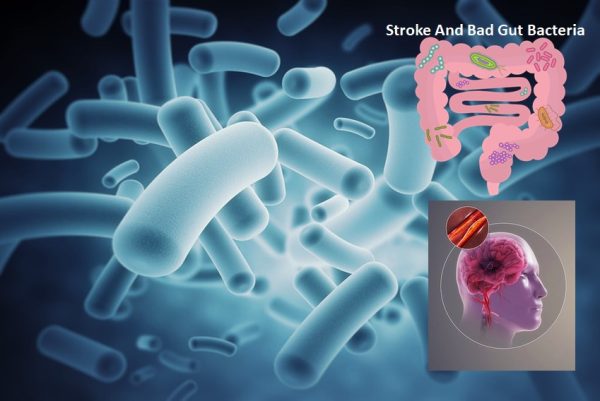
New study links gut microbiota strains with more severe strokes and poorer post-stroke recovery
There are millions of bacteria live in our digestive system and responsible for our health. There are many species of these microbes that reside in our gut system help us to keep good health while there are other microbes that are not. Our diet promotes health and diversity of good microbes by monitoring, treating and preventing several conditions including inflammation, diabetes, obesity etc. Gut bacteria play an important role in human health, such as supplying essential nutrients, synthesizing vitamin K, aiding in the digestion of cellulose, and promoting angiogenesis and enteric nerve function.
To maintain gut friendly bacteria, we need to consume fiber, prebiotic rich foods, reduce meat, limit intake of fats and avoid consuming antibiotics that are harmful for microbes.
What are bad gut microbes?
Those microbes that have adverse effects on our body that trigger several diseases including weight gain, obesity, insomnia, diabetes, fatigue etc. are bad gut microbes. This includes bacteria such as Clostridium perfringes, Staphylococcus, E. coli that interfere in gut health. Some of the microbes are considered as opportunistic bacteria because when our body is weak these bacteria wake up and cause adverse effects.
Recent study by Sant Pau Research Institute at Barcelona, Spain showed that bad microbes in our gut can lead to stroke and poorer stroke recovery. Details of the study is below- Healthy Life
A new study has identified strains of gut microbiota that are associated with more severe strokes and worse post-stroke recovery, revealing that the gut microbiome could be an important factor in stroke risk and outcomes.
The study, presented today at the European Stroke Organisation Conference (ESOC 2022) pinpointed specific groups of bacteria associated with poorer neurological recovery from ischaemic stroke both in the acute phase (24 hours) and after three months.
The research identified multiple types of bacteria were associated with ischemic stroke risk, including Fusobacterium and Lactobacillus. Negativibacillus and Lentisphaeria were associated with a more severe stroke in the acute phase (at 6 and 24 hours respectively) and Acidaminococcus related to poor functional outcomes at three months.
Dr Miquel Lledós, lead author from the Sant Pau Research Institute Stroke Pharmacogenomics and Genetics Laboratory, Barcelona, Spain, commented “The influence of the gut microbiome – the trillions of bacteria and other microorganisms that live in the gut – is a modifiable risk factor associated with the risk of stroke and with post-stroke neurological outcomes. However, most research has previously been done in animal models.”
“In this study we took faecal samples – the first samples taken after the event – from 89 humans who’d suffered an ischaemic stroke. Comparing with a control group, we were able to identify multiple groups of bacteria that were associated with a higher risk of ischaemic stroke.”
An ischaemic stroke occurs when a clot or other blockage blocks the blood supply to the brain and is the most common type of stroke. In Europe, 1.3 million people suffer a stroke every year and it is the second most common single cause of death.
“The discovery opens the exciting prospect that, in the future, we may be able to prevent strokes or improve neurological recovery by examining the gut microbiota. In other pathologies, clinical trials are being carried out where researchers replace the intestinal flora through dietary changes or faecal transplantation from healthy individuals and this should be studied further in the stroke field.”
For more read: https://www.prnewswire.com/news-release
Image credit:
- DataBase Center for Life Science (DBCLS), CC BY 4.0 <https://creativecommons.org/licenses/by/4.0>, via Wikimedia Commons
- https://www.flickr.com/photos/ibm_research_zurich/ (CC by 2.0 Free for commercial use)
- https://www.scientificanimations.com/, CC BY-SA 4.0 <https://creativecommons.org/licenses/by-sa/4.0>, via Wikimedia Commons
Author: HealthyLife | Posted on: May 11, 2022
« FDA Authorizes First COVID-19 Diagnostic Test Using Breath Samples Cancer Tumors Vanished! A major breakthrough; A clinical trial eliminates cancer in every patient! »






















Write a comment